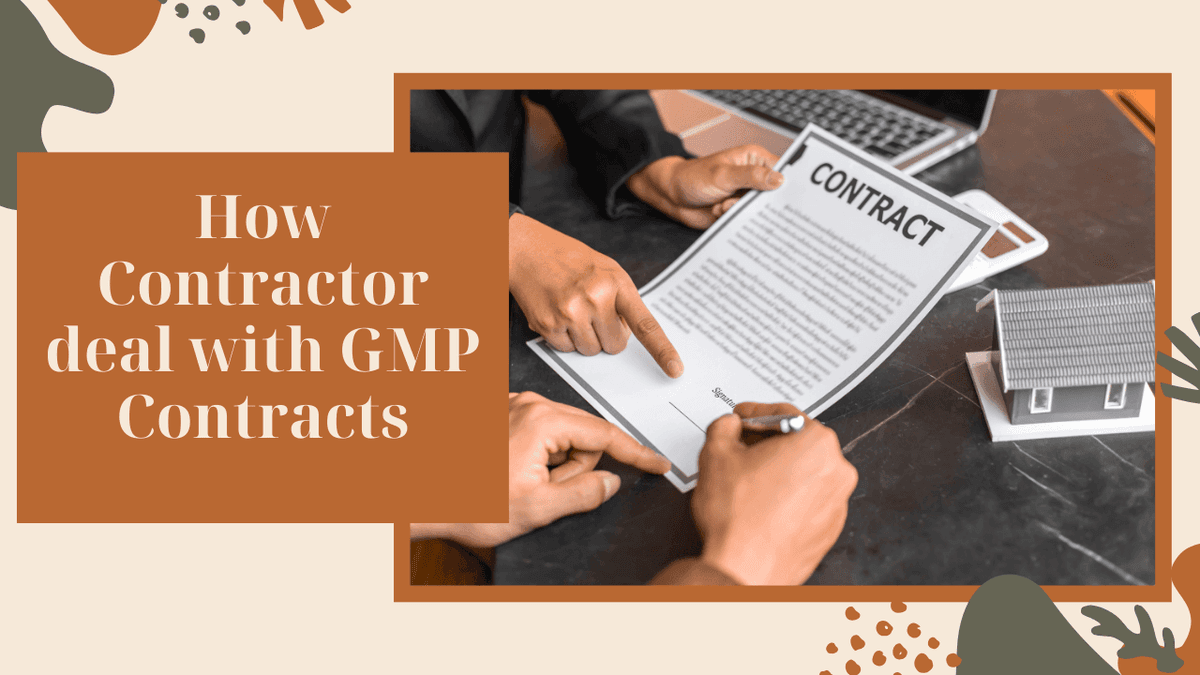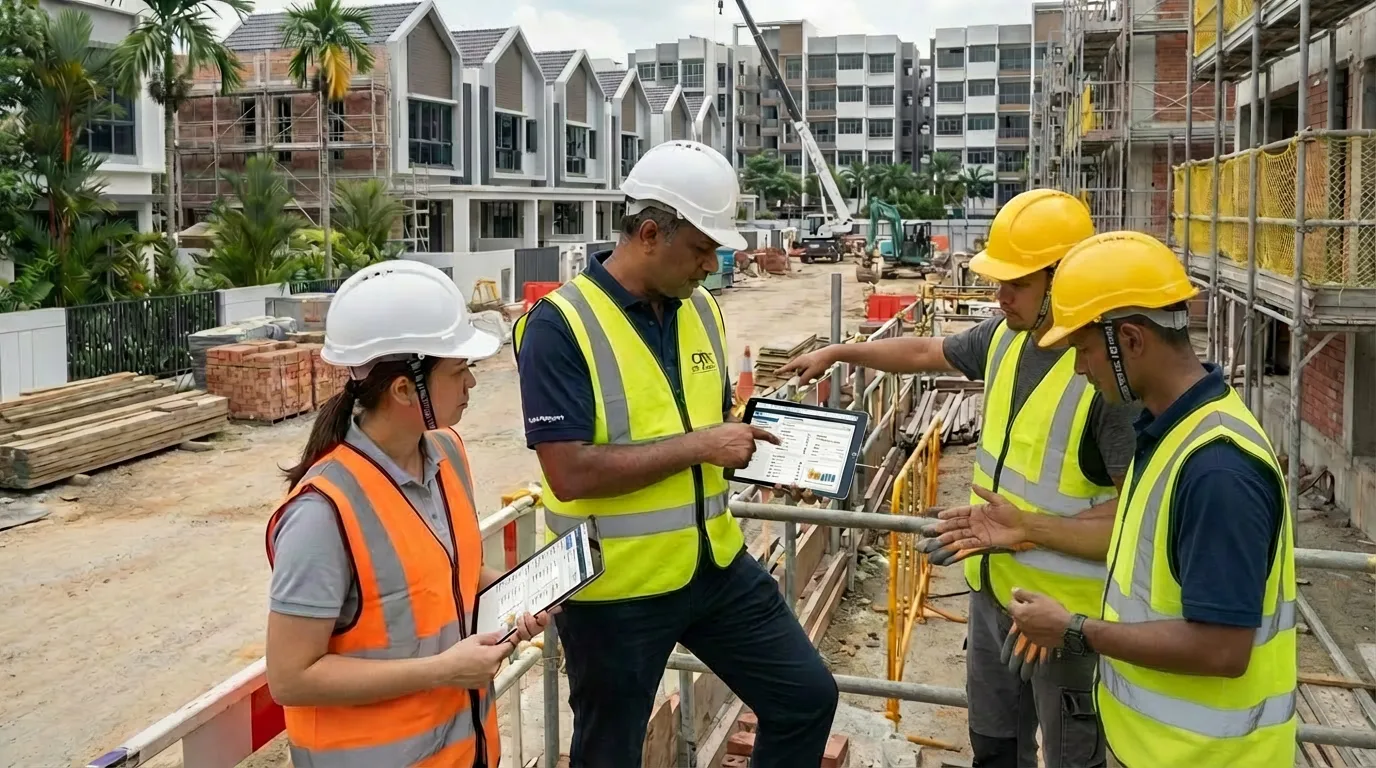How Contractor Dealing with Guaranteed Maximum Price (GMP) Contracts in Construction
by Sam Chen
|
Learn how contractors dealing with a guaranteed maximum price contract ensures budgets stay on track and risks stay low. This gmp construction meaning provides a clear financial framework for projects, but it demands precision, transparency, and strong leadership from contractors to succeed.
Understanding the Basics of GMP Contracts
What a Guaranteed Maximum Price Really Means
A guaranteed maximum price contract is a cost agreement where the contractor commits to completing a project for a capped price. The owner is assured that the total cost will not exceed this limit, while the contractor assumes the risk of staying within budget. If actual costs come in under the GMP, the savings often benefit the owner—or both parties, depending on the terms. This structure brings cost certainty, a major advantage in an industry where overruns are common. Understanding gmp meaning in construction is essential for both owners and contractors to reduce risk.
Key Players and Their Roles in a GMP Agreement
A successful gmp contract involves collaboration between three key players: the project owner, the contractor, and the design team. The owner sets expectations and funding limits. The contractor manages budgeting, scheduling, and delivery, while the design team ensures plans are achievable within the guaranteed price. Open communication among these parties is critical to minimizing risk and maximizing efficiency in gmp construction.
Advantages of GMP Contracts for Contractors
Greater Control
A guaranteed maximum price contract allows contractors to step in early, often during preconstruction, granting them influence over budgeting, design, and scheduling. This proactive role enables them to anticipate challenges, select cost-effective solutions, and steer the project toward success. By managing costs closely, contractors maintain control over margins and resources.
May Include Incentives
Many gmp construction contracts include incentive clauses, such as split savings arrangements, which reward contractors for reducing costs below the guaranteed maximum. These incentives encourage teams to innovate, streamline processes, and deliver exceptional value while improving profitability.
Potentially Higher Fee
Since gmp construction contracts place risk on the contractor, they often justify higher fees. This compensation reflects the expertise and responsibility assumed in cost management. With strategic planning, contractors can safeguard fees and ensure project quality.
Minimize Unexpected Outcomes
Early contractor involvement enables accurate forecasting and fewer surprises. Contractors can evaluate designs early, foresee costly hurdles, and create a realistic guaranteed maximum price contract that minimizes unexpected expenses and delays.
Opportunity to Foster Trust
The transparency inherent in a gmp contract builds trust between contractors and owners. Clear documentation and open dialogue strengthen relationships, often leading to repeat business and long-term partnerships.
Disadvantages of GMP Contracts for Contractors
Requires Detailed, Careful Review of Specifications
A guaranteed maximum price contract demands meticulous review of drawings, specifications, and scope. Any oversight can result in absorbing unforeseen costs. Contractors must carefully analyze every detail to safeguard profits.
Requires Meticulous Cost Tracking
With a gmp contract, contractors must maintain detailed cost records to justify expenses and receive payment. This administrative effort can be time-consuming, requiring robust systems for reporting, compliance, and documentation.
Change Orders Disputes
Because gmp meaning in construction emphasizes comprehensive pricing, owners may dispute change orders, claiming they were included in the original GMP. Contractors must rely on precise documentation and strong negotiation skills to manage disputes effectively.
Using Construction Management Software to Overcome GMP Contract Challenges

👉Try all feature free fro 30 days
Construction management software simplifies the complexities of gmp construction contracts. Real-time dashboards, automated reporting, and budgeting tools streamline cost tracking. Contractors can document expenses, upload receipts, and provide instant summaries to owners, reducing potential disputes.
Scheduling features allow contractors to anticipate delays and adjust timelines before costs escalate. Digital document management ensures drawings, contracts, and specifications are readily accessible to all stakeholders, minimizing errors.
Additionally, software improves communication, enabling seamless collaboration among owners, designers, and contractors. This transparency strengthens relationships—an essential element in guaranteed maximum price contracts. With automation managing administrative tasks, contractors can focus on risk mitigation, planning, and project delivery excellence.
Conclusion
Understanding gmp construction meaning reveals both opportunities and challenges for contractors. These agreements reward planning, documentation, and proactive leadership. While risk shifts to the contractor, a guaranteed maximum price contract opens doors for profitability, stronger client trust, and long-term success. By leveraging advanced construction management software, contractors can navigate gmp construction confidently, delivering projects that stay on budget and surpass expectations.
Here are 5 FAQs about Guaranteed Maximum Price (GMP) Contracts:
What is a Guaranteed Maximum Price (GMP) contract?
A GMP contract is a construction agreement where the contractor commits to delivering the project at or below a set maximum price. Any costs above this cap are typically the contractor’s responsibility, while savings may benefit both parties.
What does GMP mean in construction?
GMP in construction stands for Guaranteed Maximum Price, meaning the project’s total cost will not exceed an agreed-upon amount, offering owners cost certainty and contractors a clear budget framework.
What are the advantages of GMP contracts for owners and contractors?
Owners benefit from cost predictability and reduced risk of overruns. Contractors gain more control over project planning, often participate earlier in design, and may earn incentives for delivering savings.
What challenges do contractors face with GMP contracts?
Contractors carry more risk, must carefully review project specifications, and need meticulous cost tracking. Change orders can also lead to disputes if not clearly documented.
When should you use a GMP contract in construction?
GMP contracts are best for complex projects where early contractor involvement is valuable. They work well when cost certainty is a priority and when owners want transparency and collaboration.


